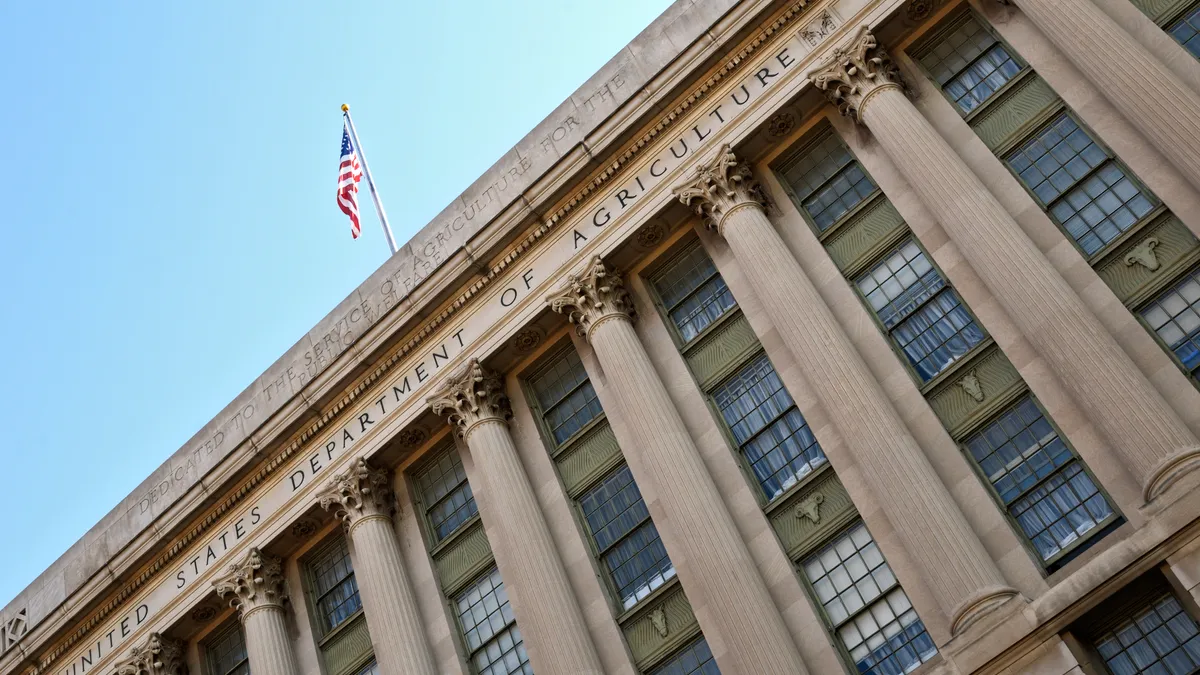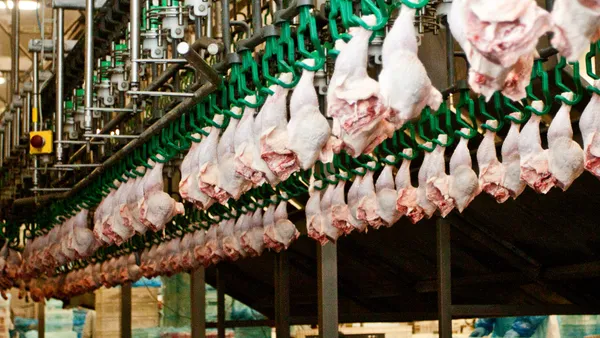Dive Brief:
- A bipartisan group of lawmakers has introduced to bolster the federal government’s role in researching and addressing food waste, including several measures advanced by the Zero Food Waste Coalition formed in April.
- The bill, known as the New Opportunities for Technological Innovation, Mitigation, and Education To Overcome Waste, or NO TIME TO Waste Act, would create an Office of Food Loss and Waste within the U.S. Department of Agriculture and set up several programs to promote intergovernmental and public-private collaboration on the issue.
- Sens. Chris Coons (D-Del.) and Jerry Moran (R-Kan.), and Reps. Chellie Pingree (D-Maine) and Mike Lawler (R-N.Y.), filed the legislation. The lawmakers introduced the bill into a complicated political atmosphere on Capitol Hill, as Congress struggles to reach an agreement on the 2023 Farm Bill.
Dive Insight:
The U.S. has committed to a United Nations goal of halving food loss and waste by 2030, but the country has made insufficient progress to meet that goal, advocates warn.
The federal government aims to cut food waste to 164 pounds per person, compared with 328 pounds in 2016. But that number was growing, not shrinking, as of the U.S. EPA’s 2019 Wasted Food Report, the most recent year for which data is available.
Lawmakers have targeted the five-year reauthorization of the USDA’s budget, commonly referred to as the farm bill, as an omnibus piece of legislation that could carry food waste and loss reduction measures. In May, Pingree said Congress needed to “catch up” to meet some of the private sector work that’s being done to increase the circularity of food, and noted a suite of legislation was forthcoming to do so. The last farm bill saw the U.S. commit to its food loss prevention goal, and also established the Food Loss and Waste Reduction Liaison at USDA.
The NO TIME bill’s biggest innovation is the creation of the Office of Food Loss and Waste. The office would be authorized to partner with other federal agencies and regional institutions to “plan, conduct, and arrange for public research, data, education, and recommendations relating to food loss and food waste prevention and reduction and food recovery issues locally, regionally, and nationally,” according to the bill text.
Setting up such an office was a key priority of the Zero Food Waste Coalition and its members, which is led by the Harvard Law School Food Law and Policy Clinic, Natural Resources Defense Council, World Wildlife Fund and ReFED.
“The NO TIME TO Waste Act recognizes the need for responsible food loss and waste policy in order to respond to the climate and hunger crises in the United States,” the coalition said in a statement. “This bill takes meaningful steps toward a future with a sustainable and resilient food system by supporting better coordination amongst government agencies, infrastructure to reduce food waste and boost food recovery, and consumer education and awareness campaigns.”
The proposed office would administer a grant program for local jurisdictions to facilitate data collection on existing food loss and waste policies. The grant program would be appropriated $2 million annually.
The bill would appropriate an additional $2 million annually to provide new Food Recovery and Distribution Infrastructure Support and Coordination Block grants. The proposed grants would address gaps in food recovery infrastructure, like cold storage and labor costs for food recovery organizations.
Both grant programs would be authorized for fiscal years 2024 through 2028, through the life of the upcoming farm bill.
The bill also sets out a suite of measures aimed at bolstering collaboration among federal agencies and between the USDA and regional and local groups. One measure to strengthen that cooperation would have the USDA convene a group of representatives for the private sector, agricultural producers, nonprofits, food recovery organizations and other food industry members to share best practices and solutions.
Finally, the bill would support research at USDA into ways to reduce on-farm waste and launch a food loss and waste public awareness campaign.
This is not the first funding opportunity for food loss and waste programs by the USDA. Earlier this week, the agency announced it would invest $25 million in grant and research programs related to the issue. The NO TIME bill also joins other bills like the Zero Food Waste Act and COMPOST Act introduced this year to expand the federal government’s efforts to rein in food waste.












